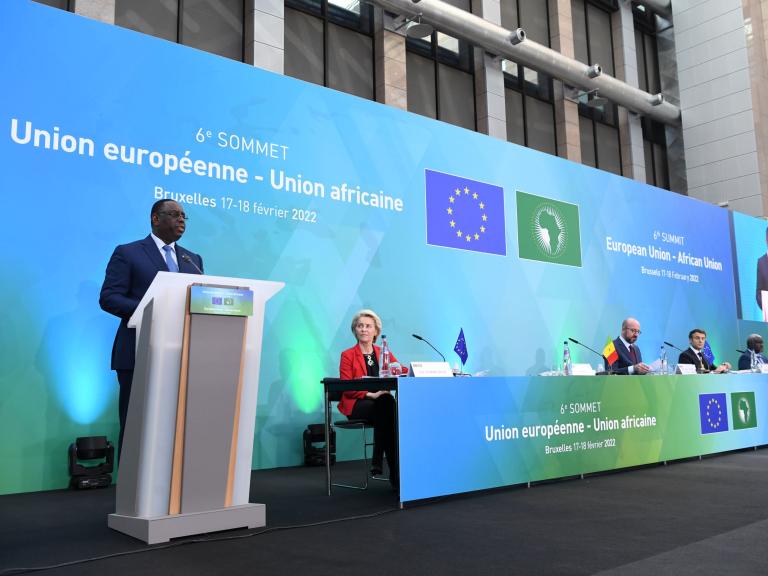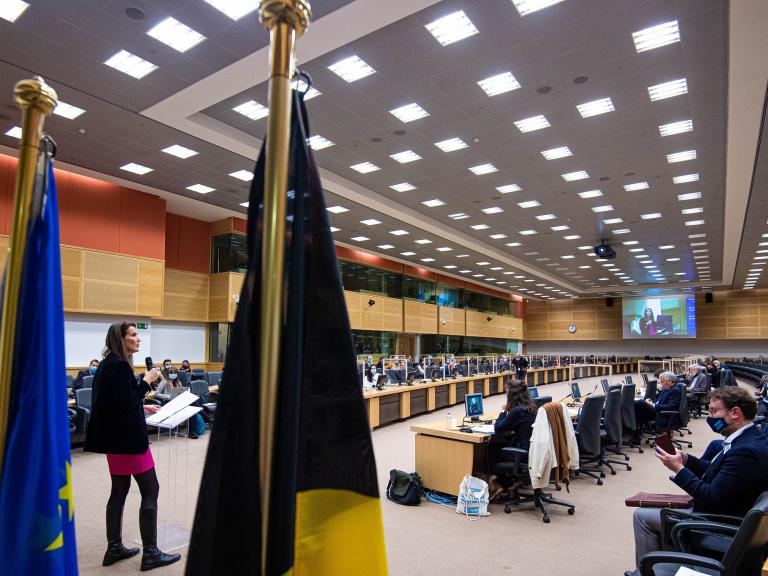-
Last updated on

© Shutterstock
Environment
Summary
Environmental problems, such as air pollution, do not stop at national borders. Partly driven by global developments, the EU has built up an impressive body of legislation, whereby the Member States are collectively seeking solutions for tackling cross-border environmental problems such as air pollution, water pollution and loss of biodiversity. A classic example of this is the European Emissions Trading System. It is the world's largest carbon market, with the aim of reducing greenhouse gas emissions in a cost-effective manner. Furthermore, this kind of European approach ensures a level playing field between the Member States, which often apply different rules.
Objectives for Belgium
Belgium always endeavours to play a highly proactive and constructive role in the discussions around European environmental policy. It aims to pursue the reconciliation of a high level of environmental protection with the principles of fair competition and the potential impact on the social fabric, in line with the three pillars of sustainable development. A high level of harmonisation and the systematic application of the community method are key factors in this context. Belgium also attaches great importance to the precautionary principle and the principle of the polluter paying.
Ambitious air quality targets bring many benefits in terms of improving public health. Nonetheless, our highly developed transport network and closely interwoven industrial fabric do not make it easy for a country like Belgium to meet the air quality targets set by the EU, which are often very ambitious.
Since the Belgian Presidency in 2010, the prudent and efficient handling of natural resources and raw materials has been high on the European agenda. Concepts like sustainable management of materials, resource efficiency and the circular economy have since made inroads into the policies of Member States. Not only at a European level, but at a global level too, Belgium has been highlighting the need for more sustainable production and consumption patterns. Following the adoption of a broad European action plan on the circular economy in June 2016, which was a great success, the EU has developed a new action plan. This plan has great consideration for the link between circular economy and climate, for a more coherent product policy with an enhanced role for the consumer, and finally for the need for a more preventative approach to waste policy. Belgium is satisfied with the implementation of this plan and hopes that after 2024, with a new Commission, the country can continue along the same path.
The Environment Action Programmes constitute the current European policy framework regarding the environment and form the guiding principle for environmental policy in the EU. Through these programmes, the European Commission is endeavouring to achieve an efficient and sustainable economy, in which nature is protected and the health and well-being of citizens are guaranteed. In the wider context of the Green Deal, the 8th Environment Action Programme is currently in full force. This programme is more focused, subscribing to the objectives of the Paris Agreement and the Sustainable Development Goals. Belgium welcomes this new direction and looks forward to the mid-term review of the programme.
Finally, the greening of the European Semester's process is a cross-cutting issue to which Belgium has paid constant attention. In this respect, the European Semester should be a tool whereby synergies can be forged between the environment on the one hand, and policy areas such as industry, research and development and innovation on the other. In any event, the European Commission has taken the first step towards such synergies, via the integration of the Sustainable Development Goals into the European Semester.
Health
Summary
The EU Member States largely organise their own healthcare for their citizens. The EU supplements national policy by setting common objectives. For example, the EU provides help in tackling common challenges such as epidemics, chronic illnesses or an ageing population. A European approach also allows for economies of scale by pooling resources, as was the case with the joint purchase of COVID-19 vaccines.
The EU health policy translates into a health strategy that includes a focus on prevention through the promotion of a healthier lifestyle, equal access to healthcare for everyone (regardless of income, gender, race, etc.) and tackling serious international threats to health.
In the spring of 2020, the European Union was hit very badly by the COVID-19 pandemic. Despite the Union’s limited powers to formulate a response to this issue, the European institutions and agencies nevertheless managed to take co-ordinated measures in various areas in a short space of time: joint purchase of protective equipment and vaccines, establishment of guidelines for testing methods, travel recommendations and the development of the EU Digital COVID certificate, approval of flexible state support and economic measures to alleviate the social and economic consequences for the Member States. Nonetheless, there turned out to be some room for improvement too: the legislative proposals in the EU Health Union package aim to make the EU stronger and more resilient against future cross-border health crises. For example, the European Commission also adopted a new EU Global Health Strategy in November 2022.
Drawing certain lessons from the COVID-19 pandemic, a strong European Health Union is being established to enable all EU countries to prepare for and respond to health crises collectively, and to work together to improve the prevention, treatment and monitoring of diseases. With this objective in mind, the European Commission is encouraging the creation of a genuine European Health Data Space, the establishment of a mental health strategy and the reform of European pharmaceutical legislation.
Objectives for Belgium
Belgium broadly supports the above points of attention in the European policy.
Although a large numbers of powers in the field of health have already been transferred to regions/communities since the various state reforms – including preventative healthcare and health education – the guiding lines in Belgian policy largely remain at the federal level. The same applies to co-ordination at the European level.
Belgium is committed at the European level to sustainable, accessible and high-quality healthcare. In this regard, Belgium is taking part in discussions around the adoption of technological tools and digital applications in the context of care, e.g. telemedicine and mobile health.
Other thematic priorities in Belgian policy relate to the consequences of an ageing population, issues around dementia and preventing the use of unhealthy substances, in particular alcohol and tobacco. Belgium also pays attention to issues around health inequality between and within the Member States.
Belgium also subscribes to the objectives of the EU Health Union legislative package. This will give the EU institutions and agencies a greater capacity for action, enabling them to respond more quickly and effectively to future health crises. It is important to make use of the momentum of the COVID-19 pandemic to enhance EU health policy and the relevant actors.
In May 2023, Belgium also proposed a non-paper in order to strengthen the EU's independence in medicine production and to avoid medicine shortages on EU territory. Following strong support for this Belgian initiative within the Council and the European Parliament, the European Commission has announced that it will shortly be publishing a communication on the subject, together with a list of essential medicines.

EU-AU summit: two unions, one vision
In Brussels, the European and African Union developed a hopeful plan for the future that should bring prosperity and stability t...

EU: more democracy in practice
Geography teacher Rafik Kiouah talks about his participation in a Belgian citizens' panel on a more democratic EU as part of the...

The EU joins forces for external action
The European Union is combining various funding channels into a single instrument: Global Europe. The simplification will give t...
